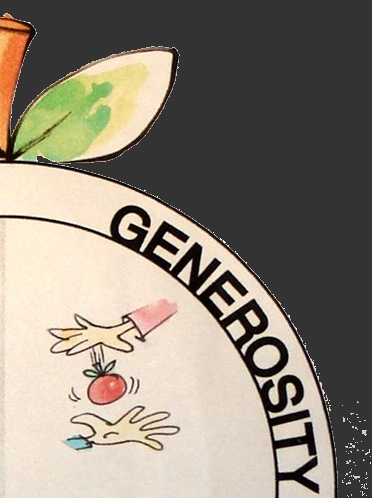Generosity
size=5]Generosity is the habit of giving. Often equated with charity as a virtue, generosity is widely accepted in
society as a desirable habit.
In times of natural disaster, relief efforts are frequently provided, voluntarily, by individuals or groups acting unilaterally in making gifts of time, resources, goods, money, etc.
Generosity is a guiding principle for many registered charities, foundations and non-profit organizations.
Generosity can also be spending time, money, or labour, for others, without being rewarded in return.
Although the term generosity often goes hand-in-hand with charity, many people in the public's eye want recognition for their good deeds. Donations are needed to support organizations and committees, however, generosity should not be limited to times of great need such as natural disasters and extreme situations.
Generosity is not solely based on one's economic status, but instead, includes the individual's pure intentions of looking out for society's common good and giving from the heart.Generosity should reflect the individual's passion to help others.
A common example of true generosity are many non-profit organizations. These organizations, whether small or large, provide free tools, supplies, and endure hours of work to improve conditions and give to less fortunate [/size]people.
[size=7]Every time we love, every time we give, 0.
Many people despise wealth, but few know how to give it away.
Generosity during life is a very different thing from generosity in the hour of death; one proceeds from genuine liberality and benevolence, the other from pride or fear.
Think of giving not as a duty but as a privilege.
You make a living by what you get. You make a life by what you give.
One isn't necessarily born with courage, but one is born with potential. Without courage, we cannot practice any other virtue with consistency. We can't be kind, true, merciful, generous, or honest.[/size]



![]() ( تقرير عن مشاركة سيئة )، و الموجودة أسفل كل مشاركة .
( تقرير عن مشاركة سيئة )، و الموجودة أسفل كل مشاركة .